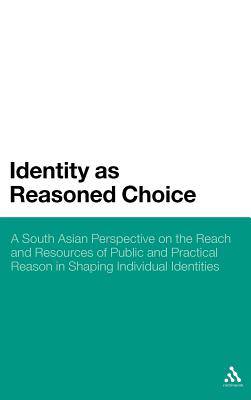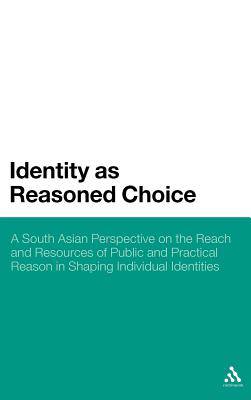
- Retrait gratuit dans votre magasin Club
- 7.000.000 titres dans notre catalogue
- Payer en toute sécurité
- Toujours un magasin près de chez vous
- Retrait gratuit dans votre magasin Club
- 7.000.0000 titres dans notre catalogue
- Payer en toute sécurité
- Toujours un magasin près de chez vous
Identity as Reasoned Choice
A South Asian Perspective on the Reach and Resources of Public and Practical Reason in Shaping Individual Identities
Jonardon Ganeri
Livre relié | Anglais
339,45 €
+ 678 points
Format
Description
In an increasingly multi-religious and multi-ethnic world, identity has become something actively chosen rather than merely acquired at birth. This book essentially analyzes the resources available to make such a choice.Looking into the world of intellectual India, this unique comparative survey focuses on the identity resources offered by India's traditions of reasoning and public debate. Arguing that identity is a formation of reason, it draws on Indian theory to claim that identities are constructed from exercises of reason as derivation from exemplary cases. The book demonstrates that contemporary debates on global governance and cosmopolitan identities can benefit from these Indian resources, which were developed within an intercultural pluralism context with an emphasis on consensual resolution of conflict. This groundbreaking work builds on themes developed by Amartya Sen to provide a creative pursuit of Indian reasoning that will appeal to anyone studying politics, philosophy, and Asian political thought.
Spécifications
Parties prenantes
- Auteur(s) :
- Editeur:
Contenu
- Nombre de pages :
- 256
- Langue:
- Anglais
Caractéristiques
- EAN:
- 9781441196576
- Date de parution :
- 02-02-12
- Format:
- Livre relié
- Format numérique:
- Genaaid
- Dimensions :
- 155 mm x 231 mm
- Poids :
- 498 g

Les avis
Nous publions uniquement les avis qui respectent les conditions requises. Consultez nos conditions pour les avis.






